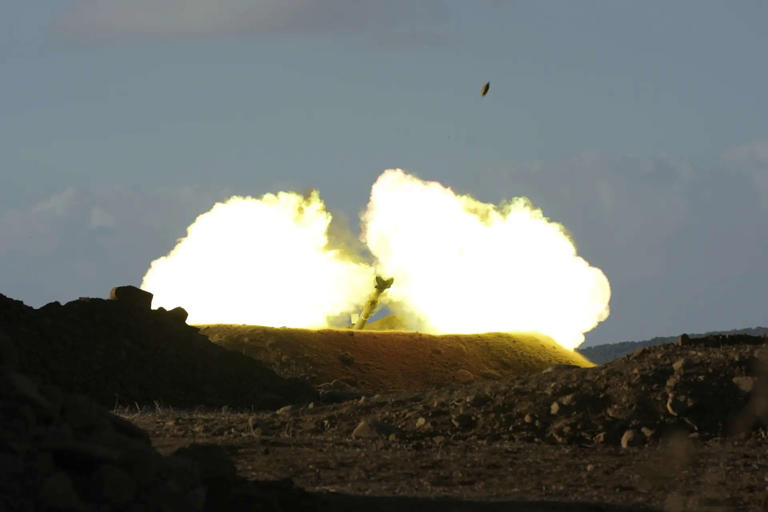Iran is facing a critical choice as Israel ramps up military strikes against Hezbollah, its key proxy in the Middle East. The assassination of Hezbollah’s long-standing leader, Hassan Nasrallah, in Israeli airstrikes on Beirut has significantly shaken Iran’s strategic influence in the region. Hezbollah, backed by Iran since its creation in 1982, is considered one of the most heavily armed non-state actors in the world, playing a crucial role in Iran’s regional strategy.
Over the past few weeks, Israel has methodically disabled Hezbollah’s communication networks and taken out senior commanders, culminating in the killing of Nasrallah. Despite Tehran’s vows of revenge, the tone of their response has been notably restrained. Analysts suggest this caution reflects Iran’s precarious economic state, as its economy reels from years of sanctions, mismanagement, and high inflation.
Oil markets seem to agree. Brent crude prices remain relatively stable at $70 a barrel, signaling that markets predict Iran will avoid a full-scale conflict that could jeopardize its oil production. A war would be disastrous for Iran, not only due to potential strikes on its oil infrastructure but also because of its already fragile economy.
While Iran’s supreme leader, Ayatollah Ali Khamenei, pledged support to Hezbollah, he also signaled that the decision to retaliate would lie with Hezbollah itself. Iran appears to be prioritizing its long-term survival and regional influence over immediate retaliation. Reformist voices within Iran, including newly elected President Masoud Pezeshkian, are pushing for restraint and aiming to revive relations with the West, hoping for a return to nuclear deal negotiations that could ease sanctions.
However, hardliners within Iran argue that a strong response is necessary to maintain deterrence against further Israeli strikes, fearing that Iran itself could be the next target. Despite internal pressures, Iran seems focused on continuing its proxy warfare in the region without escalating into direct conflict.
Meanwhile, Hezbollah continues to strike Israel, launching rockets and preparing for a potential ground incursion by Israeli forces into Lebanon. The situation remains tense, with Israeli airstrikes continuing to target Hezbollah assets. The long-term effects of these strikes on Iran’s regional network of allies in Lebanon, Iraq, Syria, and Yemen are yet to be seen.
Regional experts note that Iran’s deterrence strategy is now in jeopardy, but despite these setbacks, Iran is unlikely to abandon its proxies. Instead, Tehran is likely to regroup and continue to support Hezbollah from behind the scenes, as the group rebuilds its leadership and capabilities.
As Israel pushes forward with its military operations, markets and analysts are left to wonder whether this escalating conflict marks the beginning of a larger regional war, or merely a new phase in the long-standing hostilities. Only time will tell which path Iran chooses in the face of these mounting challenges.

